"Typically, walking happens between 11 and 18 months," Dr. Amie Dougherty says. "But comparison is so hard. Remember, it's a continuum and every baby is different." Walking is one of the most exciting and stressful developmental milestones. If your baby is nearing this milestone, we're here to help.

Walking Among Developmental Milestones
Walking isn't an isolated milestone. Babies follow a natural progression of movement they’ve been working on since birth. From building muscles during tummy time, babies learn to crawl, pull up, and eventually stand.
Many babies also cruise or walk while holding onto a coffee table or couch for support. At that point, they might take their first unsupported steps.
The American Academy of Pediatrics offers a helpful tool that explains how babies learn to walk. Plus, the tool guides you through important stages of walking to help check your baby's progress.
Pediatric Physical Therapist-Approved Activities that Encourage Baby to Walk
How can you help your baby practice walking? Many fun walking activities can help crawlers and toddlers make progress. Here are some activities you can try at home.
1. Standing Independently
Dr. Amie emphasizes that parents shouldn't forget about standing. "Encourage your baby to stand in the middle of the room." To help distract your baby, Dr. Amie recommends blowing bubbles or holding up a book and reading to them. This way, your baby practices standing up straight and gains strength and stability.
Pro tip: Dr. Amie says, "Babies go where their eyes are pointing. So, make sure to keep baby's gaze at eye level when practicing standing. If their eyes go to the floor, they'll sit down."
2. Play at Vertical Surfaces
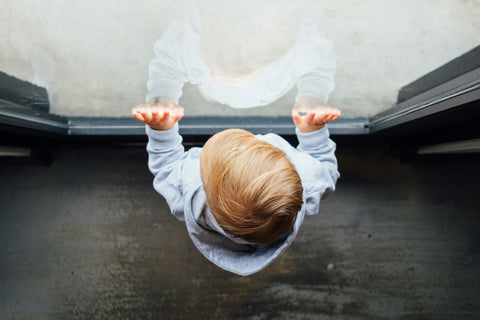
Another fun activity is to set up a play area on a glass door, wall, or your kitchen cabinets. This way, your baby stands upright while playing, building the muscles necessary for walking.
Some activities you can try are magnets on the refrigerator, suction cup toys on the window, or sticky notes. Dr. Amie says babies love pulling sticky notes off the wall. Try this with your 12 month old baby. They can keep one hand on the wall for support if needed.
3. Squat and Stand
When your baby squats and stands, they build their leg muscles. Plus, they develop stability in their core. Encourage your baby to squat and stand independently.
You can do this by having your baby stand in the middle of a room. Then, hold a book that they can squat down to turn the pages. Or, give your baby a basket and spread toys around the room. Then, show your baby how they can put the toys in the basket.
Your baby may prefer to pull up to stand using a piece of furniture. That's also great practice! However, Dr. Amie says this often causes your baby to move up to their toes. Squatting and standing independently means your baby keeps their feet firmly planted on the floor.
4. Cruise to Confidence
Cruising and push toys are some supports that can help your baby build confidence. Cruising means that your baby grabs onto furniture like a coffee table while walking. You can encourage your baby to try cruising by showing them toys, calling them to you, singing songs as you walk, and more.
5. The Stuffed Animal Walk
Sometimes, all your baby needs to be able to walk independently is confidence. Dr. Amie recommends giving your baby a stuffed animal to hold on to. Have your baby hold onto the teddy bear's arm while you hold the bear's other arm. Your baby will feel the emotional support and start walking almost independently!
Some other great tools include hoola hoops, broomsticks, and even a wooden spoon. Your baby may feel more confident with something to hold on to. "For one child, I put my finger on their head, and they immediately started walking!" Dr. Amie said. So, be creative.
6. Walk on Uneven Surfaces
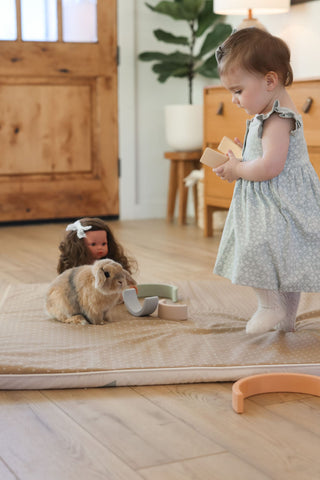
Once your baby can walk, have them try navigating different surfaces. From rock landscaping to squishy play mats, and mulch, your baby can gain a lot from practicing walking on uneven ground.
Toddlers often seek these challenges. Your baby may insist on walking on a curb or along a log. When possible, let them enjoy and learn from these experiences.
Signs Baby Needs Support with Walking
Worrying about your baby is natural. Yet, how do you know when you should bring up your concerns to your provider? The AAP's motor delay tool provides some helpful signs for parents.
Dr. Amie also offered some advice. "Remember, if your baby was a later crawler, they may also walk later," she says. Dr. Amie suggests that parents seek help around the 16 month mark if their baby isn't standing and taking their first wobbly steps. "At that point, with early intervention, the baby may still achieve the milestone on a normal timeline," she explains.
Other concerns to be aware of include asymmetries, Dr. Amie says. "Sometimes pediatricians ask if the baby is walking, and that's it. However, if you notice one of your baby's feet turns out, that's something to bring up." In short, if you have concerns, let your provider know.
Are Tippy Toes a Sign of Concern?
Tippy toes are not usually a concern for new walkers. "Babies often walk on their tippy toes when following a push toy," Dr. Amie says. Walking on tippy toes is only a concern if your baby is a proficient walker and still prefers to walk this way. If your baby is older than 2 and has been walking for a while and still prefers tippy toes, let your provider know.
How to Help an Unsteady Walker
Walking is hard work. Dr. Amie says that unsteady walkers usually need more proximal stability or strength in their trunks. Some activities that can help with this include crawling and climbing. Have your baby climb a Pikler triangle or crawl on hands and knees through a tunnel.
Another good activity is having your baby stand on noncompliant surfaces. A balance board or squishy mat are good examples.
When working on this, try not to hold your baby's hands to support them. "Your baby only has to work above where you're holding them," Dr. Amie explains. "So, gently grab their hips or thighs, because you want them to work a little bit. Give the least support possible - try just grabbing a leg!"

Tips on Shoes for Baby's First Steps
When babies start walking, it's best for them to do it barefoot. This helps babies develop the tiny muscles in their feet. "Shoes are for protection during the toddler phase," Dr. Amie says. At home, try letting your child go barefoot.
When going to environments like daycare or the store, choose a soft-soled shoe. Dr. Amie recommends that your toddler wear shoes you can fold in half. They should have a flat sole and a heel cup. A velcro strap is great for keeping the shoe tight and in place. One brand she recommends is Ten Littles.
Some toddlers may require a more supportive shoe. Check with your provider if you think your baby needs help in this area.
The Bottom Line: When Does an Infant Start Walking
Usually, babies start walking between about 11 and 18 months of age. Some babies walk earlier while others take their time. With encouragement and support, every baby can toddle around and explore the world.
What has your experience with walking been? Tell us your experiences in the comments.
Sources:
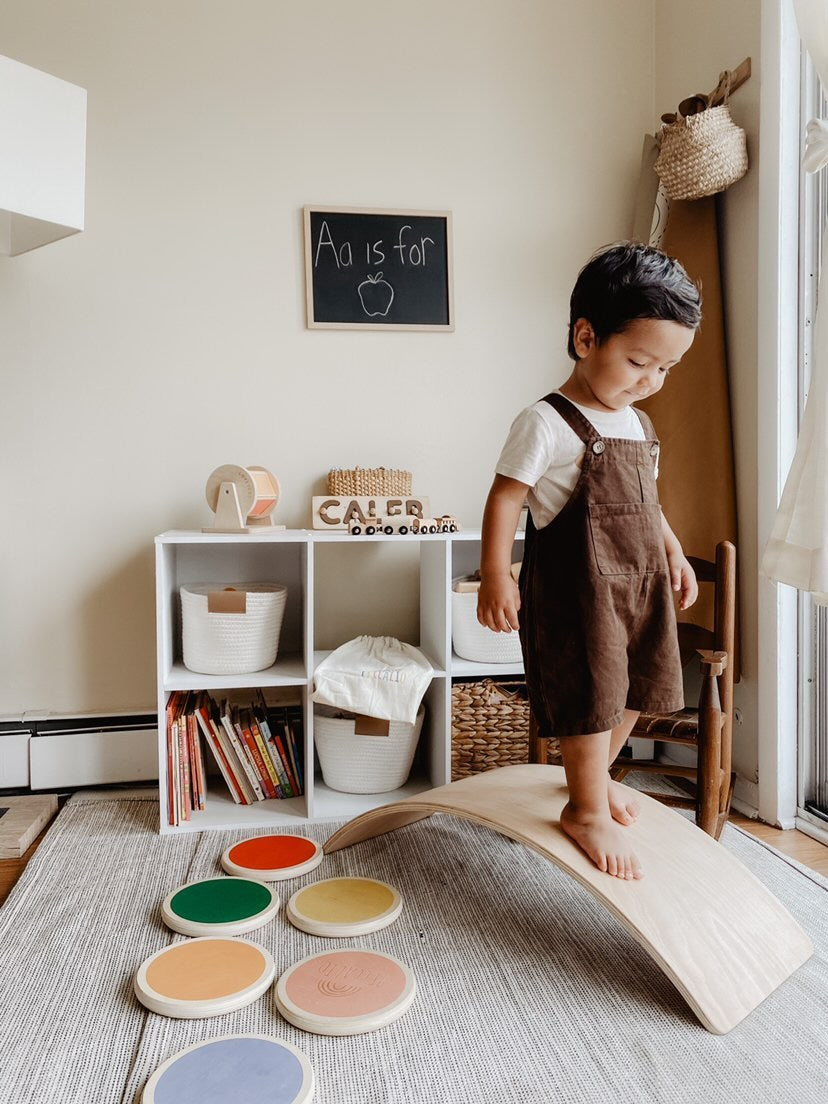

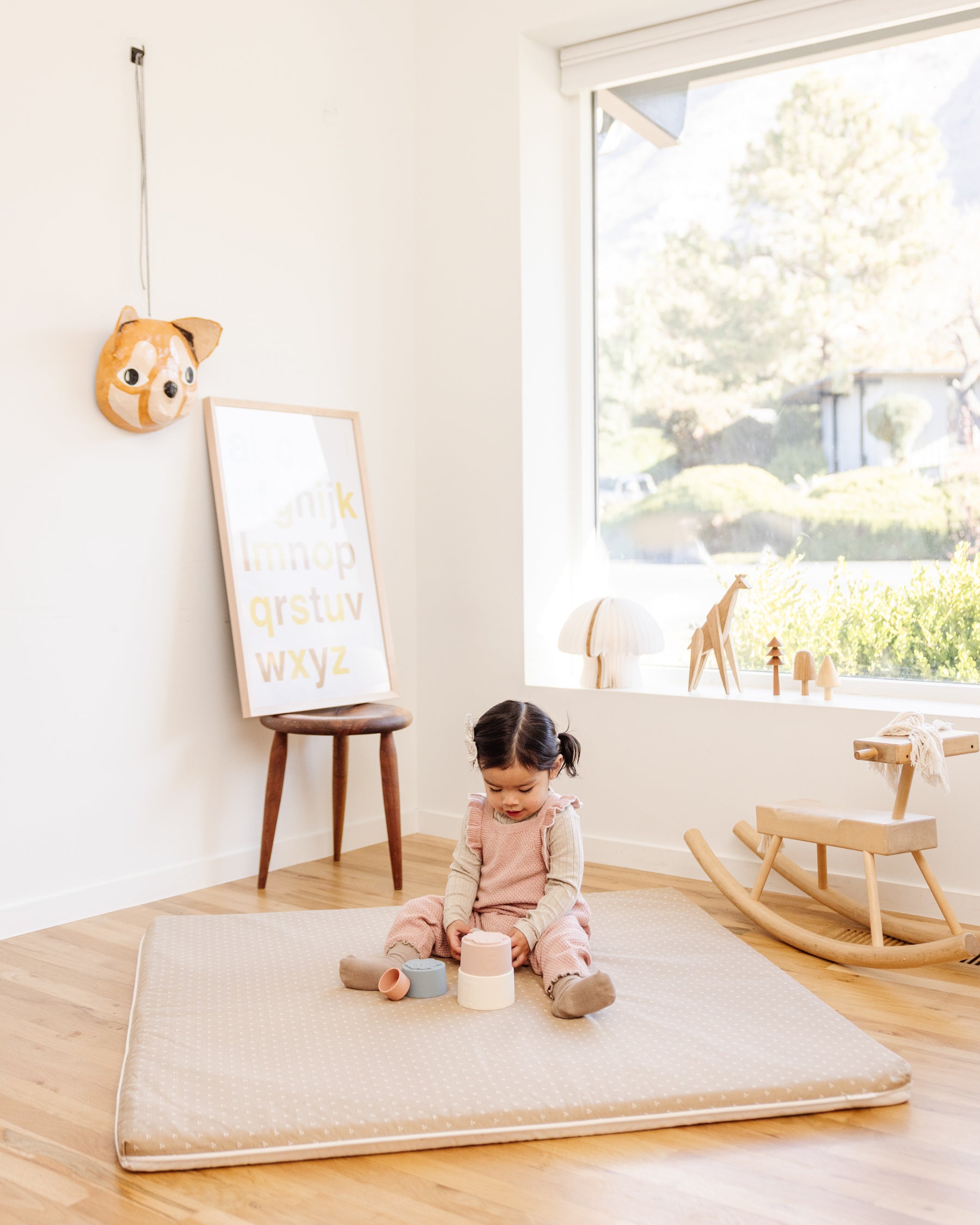
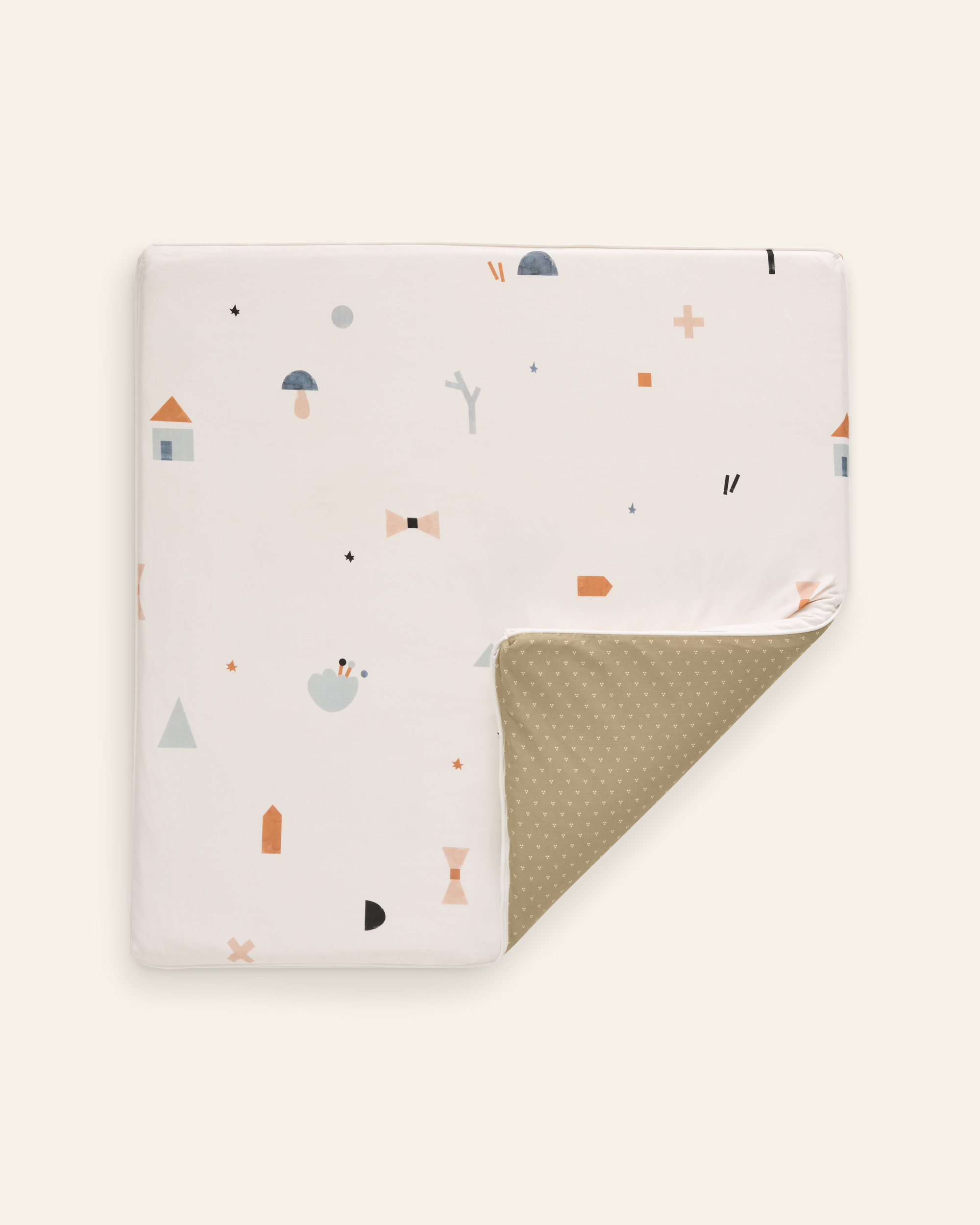
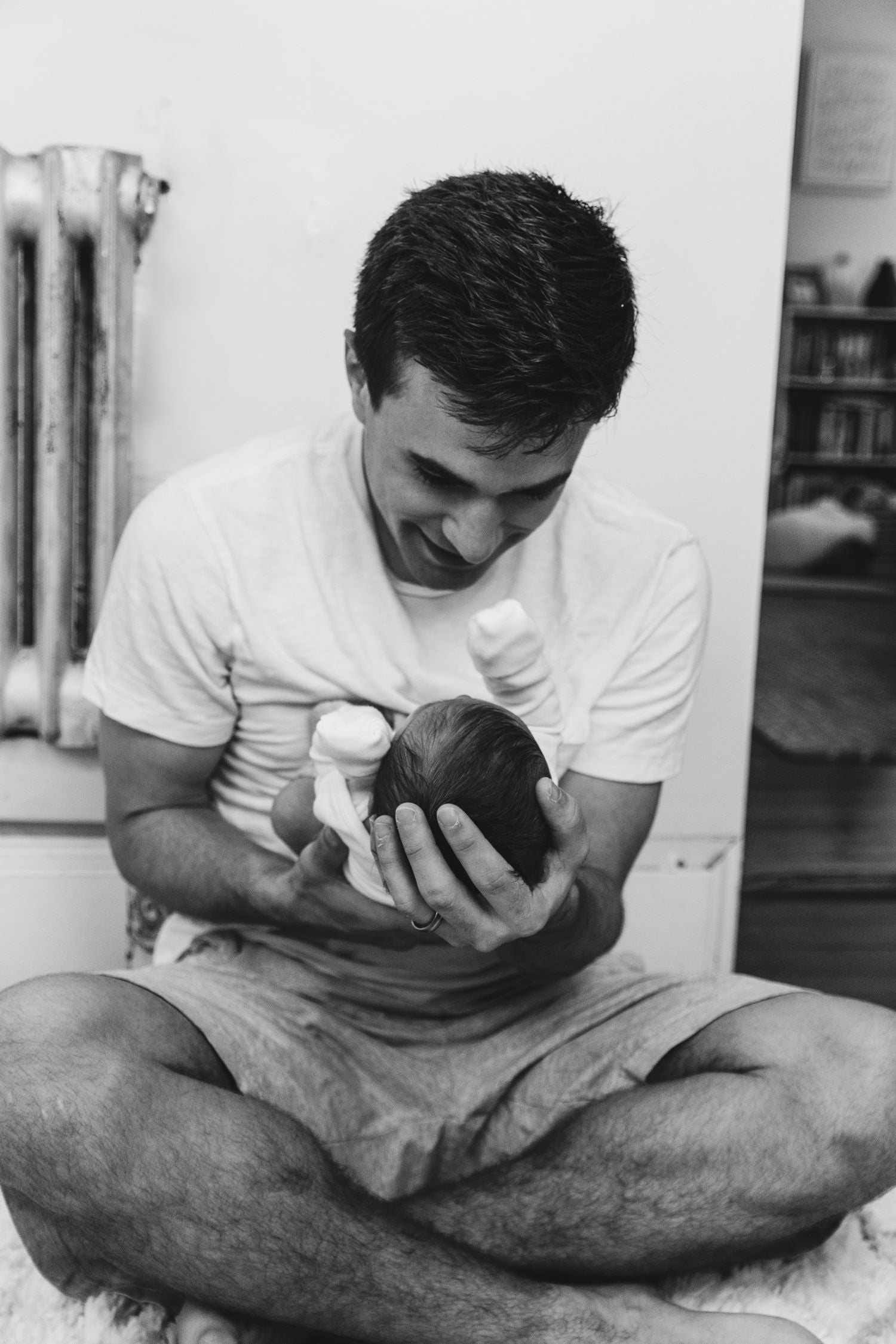





Leave a comment
This site is protected by hCaptcha and the hCaptcha Privacy Policy and Terms of Service apply.